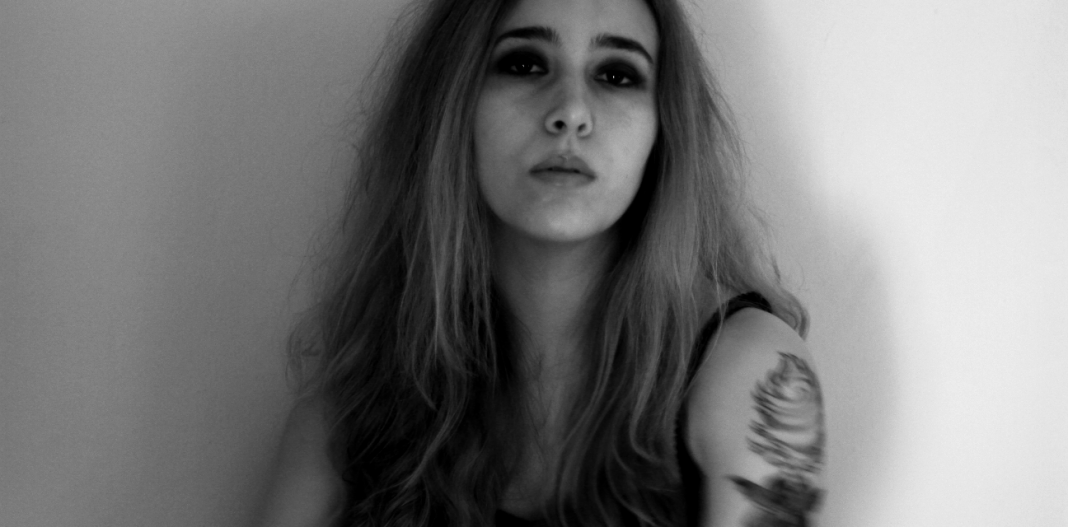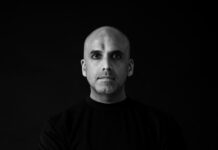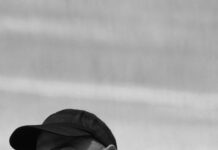Photo: Press (Ipek Gorgun)
If Ipek Gorgun’s music is hard to pigeonhole, that’s probably because her own musical interests are as vast as her approach to composing is singular. Drawing from electroacoustic music, the Istanbul-based musician found a home at the iconic British Touch label, but feels just as comfortable in collaborating with Egyptrixx alias Ceramic TL, with whom she released the album Perfect Lung in 2017. Ahead of the release of her sophomore solo album later this year, Ipek Gorgun’s contribution to our Groove podcast is a densely layered mix that is just as diverse as her own taste appears to be.
You grew up listening to punk music before gradually gravitating towards electroacoustic music, for which you cited a fascination with noise. What even qualifies as noise these days, to your ears?
Yeah, but in fact before going crazy with electroacoustic music, I kept exploring noise through no wave, industrial, shoegaze and jazz as well. Looking back then what I called as noise was only a search for a different approach to sound, looking for dissonances, unusual timbres, etc. Now I’m thinking almost everything as noise, and believing that everything I hear has the potential of becoming music. And what fascinates me even more is how our perception of sounds leads to their organisation in cognitive manners, and we end up with music; be it the songs of birds, or the songs of a rainforest.
Currently, you are working on your doctoral thesis in Sonic Arts. What is your thesis about and how do your studies relate to your work as an artist?
My thesis is about the experience of temporality in electronic music composition, in which I’m basically discussing various approaches towards temporality in the academic field of electronic music. Issues of space and especially time have been haunting me for quite a while, so I felt the need to take a deeper dive on temporality’s significance in compositional process. In terms of my work as an artist, I realise that I’m deeply interested in non-linearities and multiple time scales. That is to say, I enjoy hearing sonic components that open up to new temporal dimensions- such as a sudden dialogue of micro particles creating ruptures in the overall flux of composition. And I’m still obsessed with the idea of a never-ending present tense that we keep chasing while making music. No matter how hard we try to hold on to a musical gesture, it always ends up being past.
You’ve recently worked with Egyptrixx – here under his Ceramic TL moniker – on the collaborative album Perfect Lung. How did the working process look like and which themes informed the making of the record? Ecology and politics seemed to play a role, judging from the track titles.
Ah, it was a great journey. David brought these loops that were absolutely coming from the heart with so beautiful melodies, percussive elements and a million possibilities to explore. At first what we had in mind was me doing the sound design/non-harmonic content for his material, but I got carried away and ended up singing, writing harmonies with bass and acoustic guitar, while figuring out a way to implement techniques such as micro montage or cross-synthesis on a melodic and rhythmic sound world. It was such a luxury to be blessed by a talented artist like him providing so many options and allowing flexibility in his work. We were both inspired by the idea of a perfect lung in a polluted, polymer earth. Everywhere we see campaigns for making a clean, healthy space with this ideally healthy individual following the so-called rules of the wellness movement. However, we keep ending up with more trash, plastic and pollution. All the dreams of “good vibes” and leaving a clean legacy to the environment seem to be quite ironic when faced with the current state of the world; it’s a bit like quinoa and kale salad versus war, hunger and oil spill.
You’re not an active DJ, however have so far released a slew of mixes. Which role do those mixes play for you as an artist – and what was the idea behind your contribution to our Groove podcast?
When I think of the DJ performances of artists like Objekt, Laurel Halo, Logos or Mumdance, I can say that I’m nowhere near being a proper DJ. I think that DJing is an amazing art form, requiring a wide range of skills from crafting a set in front of an audience, or selecting “the track”, to making the transition at the right moment, in the right place. And frankly, I don’t think I will ever be able to make these precise, momentary decisions in a live environment. And it’s funny because I improvise a lot in my own concerts, so I make tons of similar decisions. But when it comes to mixing other people’s music I kind of overthink it. However, I’m passionate about making mixes and sharing music with people. So I indeed consider myself lucky to have the chance to contribute to publications and radio stations so often. I realise that mixing plays a significant role for me as an artist. Even though I rely heavily on experimentation in my music, I feel like there’s always a comfort zone to be challenged. And making mixes enables me to directly interact with different types of music, which leads to looking for new perspectives. The mood I had in mind this time was more sensual with lots of space, instead of aggressive and agitated – and I love that a lot. I sometimes tend to prioritise long blocks of ambient, harsh noise or free jazz in my sets. For the Groove podcast, I decided to do the opposite through calmer transitions, with tracks having more melodies, minor interruptions and maybe some rhythmic possibilities.
Last but not least: Where can we see you live in the near future, and what are your plans as a producer?
I’ll join Istanbul Soundscape Project’s Haydarpasa Train Station tribute in Istanbul, then I’ll travel to Lugano next week for a rework performance of Igor Stravinsky’s Firebird in the Oggimusica Acousmonium. And a couple days later I’ll join the electroacoustic duo Alberi for an improv gig in Turin. By early fall, I’ll be releasing my second album on Touch, and by late September I’ll contribute to the Dystopie festival with a multi-channel audio installation in Die Wasserspeicher, Berlin.
Stream: Ipek Gorgun – Groove Podcast 159
01. Carter Tutti – Calm Circle
02. Circuit des Yeux – Falling Blonde
03. Mondual – Teabee
04. Dekoboko Hajime & Yamantaka Eye – Bad Hawkwind
05. Jetone – Flowers No.4
06. Oöphoi – A Single, Perfect Sphere Beyond The Curved Horizon
07. CTI – Daspooki
08. Soleïlkraast – Zoyd Kraast
09. Mika Vainio – Alexandrovsk
10. Chris Watson and Jana Winderen – Three
11. Tomoko Sauvage – Making of a Rainbow
12. Kiyoshi Mizutani & Kiyoharu Kuwayama – Interlude 1
13. Twerk – Bluepill
14. Alexandr Vatagin – Rats and Mistakes
15. Senking – Tar
16. Nurse With Wound – Home Is Where The Heart Is
17. Uio Loi – Seophear
18. Motion Graphics – Vistabrick
19. Kara-Lis Coverdale & LXV – Buffering Landscape
20. Hafler Trio & Z’ev – Geelgalayah
21. Lea Bertucci – At Dawn
22. Frank Bretschneider – Crystal Dub
23. Ellende – Loves Dikes
24. CM Von Hausswolff – Swamp Overview
25. Cristian Vogel – Dirt System
26. Mokira – Cliphop
27. Body Scupltures – Feet Into Soil
28. SHXCXCHCXSH – SsSsSsSsSsSsSsSsSsSsSs
29. Mira Calix – Ithanga
30. AGF – FUNgi
31. David Tagg – Orchids 5
32. Spyra – Etherlands (Part 1)





